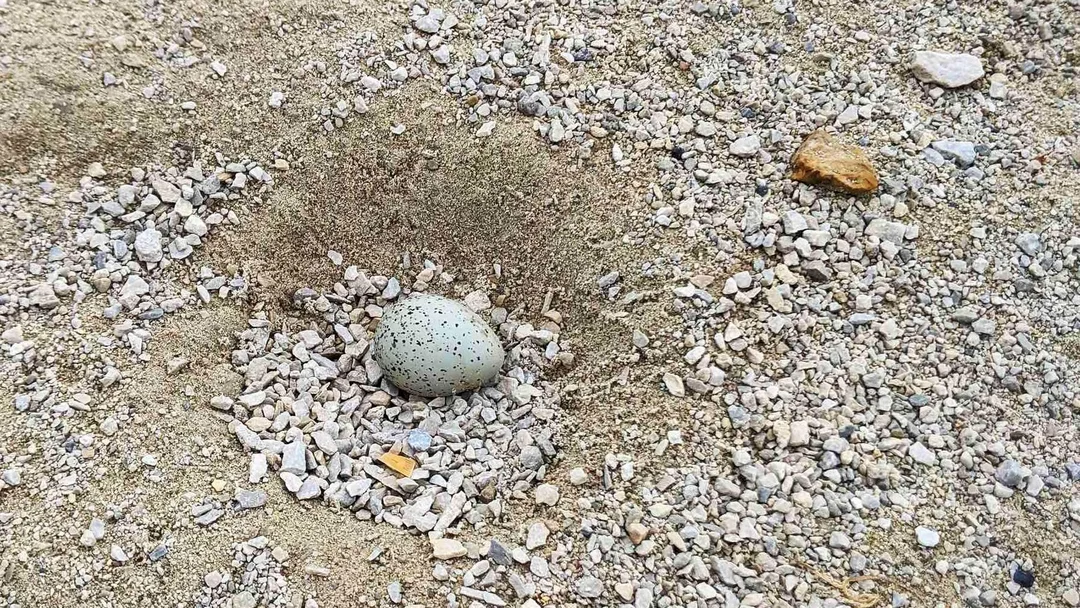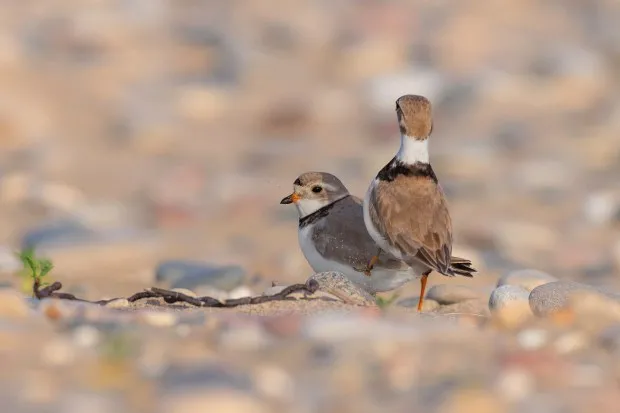
Piping Plovers Return to Waukegan Beach: Love, Drama, and Conservation
Piping plovers, the federally endangered shorebirds, are causing quite a stir along the shores of Waukegan Beach as the beloved pair, Pepper and Blaze, have returned to incubate their nest of four eggs. After successfully raising three chicks in 2024, their reunion and nesting season is a beacon of hope in avian conservation.

As reported by Carolyn Lueck, president of the Lake County Audubon Society, this season has not been without its challenges. The nests are precariously located among beach developments, making them vulnerable to predators and changing weather patterns. Last week, strong winds nearly washed away their nesting site, but thanks to vigilant monitoring and protective measures put in place by recovery specialists like Brad Semel, the nest has survived thus far.
This pulse of activity is emblematic of the ongoing recovery efforts for the Great Lakes piping plover population, which has been under threat due to habitat loss. Five decades ago, only 13 pairs were left in the wild, creating a dire situation that catalyzed protective measures in the region, including extensive volunteer monitoring. Conservation initiatives are paying off; breeding pairs have increased to 81 as of last summer.
The return of these birds is closely monitored by conservationists, and the anticipation builds as the eggs are expected to hatch around June 17. "There’s plenty of drama surrounding these vulnerable shorebirds both in Lake County and at Montrose Beach," stated Semel, reflecting on how the fate of these tiny creatures captivates the local community.
In the wider narrative, the legacy of Chicago’s icon pair, Monty and Rose, remains a touchstone for this mating season. Their journey inspired a movement, leading to significant conservation awareness. With their tragic story concluding in 2022, the next generation—like Imani, their offspring—is under the watchful eye of conservationists, showcasing the ongoing cycle of life.
The Lake County Audubon Society's initiatives, including the upcoming first-annual Piping Plover Day, emphasize the importance of these efforts. Through public education and active participation, the organization hopes to strengthen the bond between communities and their local wildlife. As Lueck eloquently put it, “By protecting that habitat, you are protecting the habitat for all the other flora and fauna.”
As we stand on the brink of a new hatching season, one can't help but wonder: what will the future hold for these dedicated pairs and their offspring? Are we witnessing the turning tide for a brighter future for piping plovers, or will challenges persist? Let's celebrate this success while remaining vigilant in our conservation efforts.
What do you think about the ongoing efforts to protect piping plovers? Share your thoughts in the comments below and let’s continue the conversation about our winged friends!